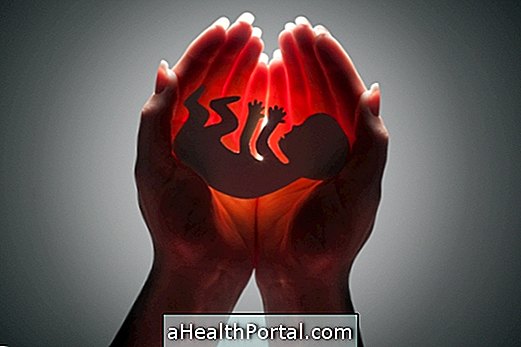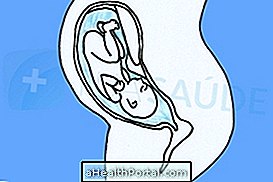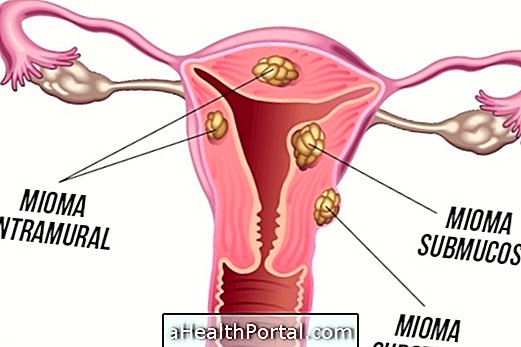With the growth of the uterus and the development of the baby the belly begins to get hard as early as the beginning of pregnancy, around 7 or 8 weeks of gestation. At this stage it is normal for the woman to notice that the underside of the navel, also popularly known as 'foot of the belly', is more swollen and harder than before becoming pregnant.
With the growth of the fetus the belly is getting more and more round and harder. Normally the belly starts to get hard in the lower part of the navel and then it gets hard all around the navel, and by the fifth month of gestation, the belly becomes more rounded making it clear that the woman is pregnant.

Belly lasts after 20 weeks of gestation
The belly that stays momentarily hard after the 20 weeks of gestation represent the contractions of training, scientifically called Braxton Hicks contractions. These contractions can occur several times a day and usually do not cause any pain or discomfort and so not all pregnant women perceive them.
It is easier to observe this momentary hardening of the belly at night, when the woman is more rested. There is no need to do anything when these contractions arise because they are normal and expected, but if the pregnant woman is uncomfortable, she can take a deep breath and try to calm herself down, so that the training contractions decrease.
Read also: How to identify contractions.
When the woman has many episodes of hard belly per day before 37 weeks of gestation and if there is dilatation the doctor may indicate the use of a magnesium supplement to decrease the contractility of the uterus. However, this medicinal product should only be taken under medical supervision and should be discontinued at 36 weeks of gestation in order to avoid complications during labor.
When to go to the doctor
It is advisable to go to the doctor when the woman presents:
- Several episodes of belly hard per day (more than 2 contractions per hour);
- If you feel a lot of pain when you notice a contraction;
- If you are late in pregnancy;
- If you suspect labor begins. See: Signs of labor.
- If there is fever or blood loss through the vagina;
- If there is decreased movement of the baby.
In any case whenever the woman suspects that something is wrong should contact her obstetrician to clarify their doubts and if it is not possible to talk to him, one should go to the first aid or maternity.
See too:
- What to Eat to Maintain Weight During Pregnancy
- What to bring to motherhood

























